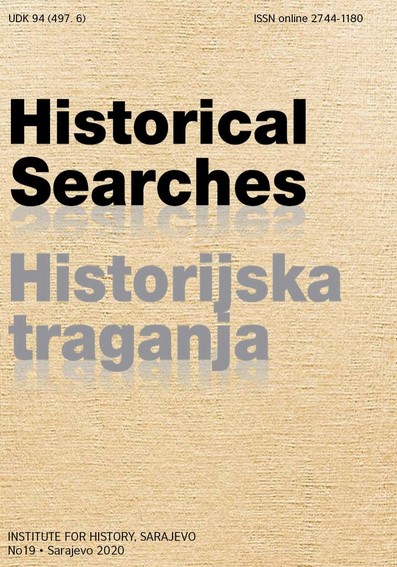THE RUTHENIAN INTELLIGENTSIA IN BOSNIA AND HERZEGOVINA BETWEEN THE 19th AND 20th CENTURY
THE RUTHENIAN INTELLIGENTSIA IN BOSNIA AND HERZEGOVINA BETWEEN THE 19th AND 20th CENTURY
Author(s): Tomasz Jacek LisSubject(s): Social history, Culture and social structure , History of Education, 19th Century, Pre-WW I & WW I (1900 -1919), Inter-Ethnic Relations
Published by: Institut za istoriju
Keywords: Ruthenians in Bosnia and Hercegovina; Austro-Hungarian period; Intelligentsia; XIX century;
Summary/Abstract: The Ruthenian intelligentsia arrived in Bosnia and Herzegovina after the Congress of Berlin, where it was decided that this country would be occupied and ruled by Austro-Hungary. In 1910 the country was inhabited by 7,431 people who professed to be Ruthenian, of which about 300 represented the intelligentsia – doctors, solicitors, barristers, etc, who arrived in this country in order to work within the Austro-Hungarian administration, because the local authorities were unwilling to entrust such positions to Croats or Serbs, furthermore, they were not able to provide sufficient qualified civil service on their own. The Ruthenians, mostly graduates from the Galician and Bukovina universities, in the times of the development of education during the Austro-Hungarian period (1867- 1918), arrived in Bosnia and Herzegovina, since their opportunities of making a career were greater there than in their homeland. The newcomers from Galicia and Bukovina usually worked at lower levels of administration, because the higher ones were occupied by Germans and Hungarians. However, some Greek-Catholics after a few years managed to get promoted and become the leading figures in Bosnia and Herzegovina. After the First World War, the majority of representatives of this diaspora remained from the Serbian, Croatian, and the Slovenian Kingdom, significantly swelling the ranks of administration of the reborn state.
Journal: Historijska traganja
- Issue Year: 2020
- Issue No: 19
- Page Range: 183-206
- Page Count: 24
- Language: English

